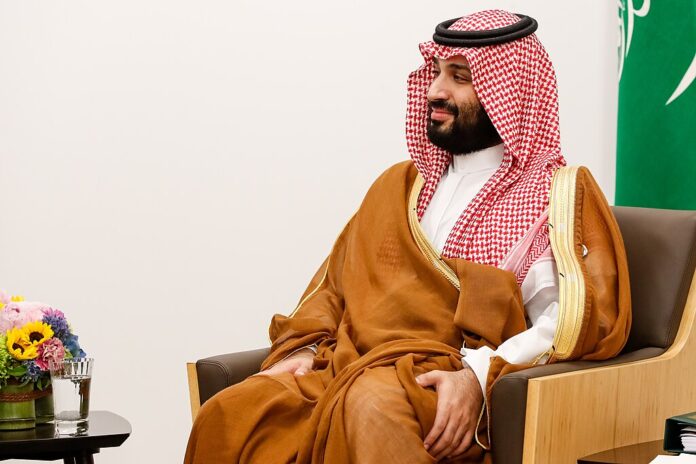Saudi Crown Prince Mohammed bin Salman and Chinese Premier Li Qing co-chair a pivotal meeting in Riyadh to enhance bilateral cooperation across multiple sectors
In a significant move to deepen bilateral relations, Saudi Crown Prince and Prime Minister Mohammed bin Salman and Chinese Premier Li Qiang co-chaired the fourth session of the High-Level Saudi-Chinese Joint Committee in Riyadh on Wednesday, September 11, 2024. This high-profile meeting underscored the growing strategic partnership between the two nations.
The discussions focused on a broad spectrum of cooperative ventures, including political and security coordination, trade expansion, and collaboration in energy, investment, culture, and technology. The leaders reviewed the latest regional and international developments and explored joint efforts to address global and local challenges.
The session concluded with both leaders signing the official minutes of the meeting, solidifying the agreements and strategic commitments discussed. Earlier in the day, Crown Prince Mohammed bin Salman welcomed Premier Li Qiang at the Royal Court with a formal reception ceremony. The event featured the playing of the Saudi Royal Anthem and the Chinese National Anthem, symbolizing the deepening diplomatic ties.
Embed from Getty ImagesFollowing the reception, Crown Prince Mohammed hosted an official luncheon in honour of Premier Li and his delegation. The Crown Prince expressed his warm welcome to the visiting dignitaries, and Premier Li conveyed his appreciation for the hospitality and the efforts put into making the visit memorable.
The reception and meeting were attended by a host of high-ranking Saudi officials, including Prince Abdullah bin Bandar, Minister of Foreign Affairs Prince Faisal bin Farhan, Minister of Culture Prince Badr bin Abdullah, and several other key figures. The Chinese delegation also included notable figures such as Minister of Industry and Information Technology Jin Zhuanglong, Minister of Commerce Wang Wentao, and Chinese Ambassador to Saudi Arabia Chang Hua, among others.
This high-level engagement reflects the ongoing commitment of both Saudi Arabia and China to enhance their strategic partnership and explore new avenues for cooperation. The outcomes of the meeting are expected to drive forward initiatives that will benefit both countries economically, culturally, and politically.
Analysis
Political: The High-Level Saudi-Chinese Joint Committee meeting represents a strategic move by both Saudi Arabia and China to strengthen their political and economic ties. By addressing various aspects of bilateral cooperation, including political coordination and security, the meeting highlights the countries’ shared interests and mutual commitment to stability in the region. The formal signing of the session’s minutes signifies a deeper alignment in their geopolitical strategies, potentially influencing broader regional dynamics.
Social: This meeting underscores a growing trend of international collaboration that reflects the evolving nature of global diplomacy. As both Saudi Arabia and China enhance their cooperation, it demonstrates how nations are increasingly prioritizing partnerships that extend beyond traditional alliances. The focus on cultural exchange and investment also points to a broader effort to build bridges between societies, fostering mutual understanding and respect.
Economic: The discussions on trade opportunities and investment underscore the economic significance of the Saudi-Chinese partnership. Both countries are likely to benefit from expanded trade relations and joint investments in key sectors such as energy and technology. The meeting’s outcomes could lead to increased economic activity and open new markets, enhancing both nations’ economic resilience and growth prospects.
Racial: While the meeting itself does not directly address racial issues, the broader context of international cooperation can influence racial dynamics. By fostering strong bilateral relationships, both Saudi Arabia and China contribute to a more interconnected global community. Such collaborations can help address global challenges and promote inclusive growth, indirectly impacting racial and ethnic diversity in various sectors.
Gender: The meeting did not specifically focus on gender issues, but the broader implications of enhanced cooperation can influence gender dynamics. Increased investment and economic opportunities resulting from stronger bilateral ties may contribute to more inclusive work environments and greater gender equality in both countries. As economic development progresses, there could be more emphasis on policies that support gender equity and empower women in various fields.
